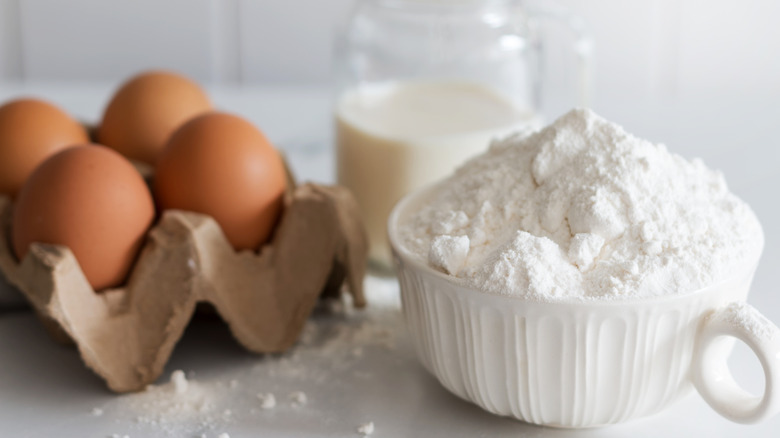Do Fresh Eggs Make A Difference In Baking?
If you've ever heard of the egg test, you know there is a difference between an egg that's fresh and an egg that's safe to eat. As with many foods, eggs' flavor declines the older they get, so if you're cooking a fried egg, where flavor is the most important, then using fresh eggs will yield a tastier meal. But what about in baked goods, where eggs are essential, but you can't taste them — does freshness matter? Of course, always make sure you're not using any egg that's spoiled, but other than that, the freshness doesn't really make a difference.
Whether you're baking cupcakes or brownies, the flavor isn't going to come from the eggs. Other ingredients, such as chocolate and sugar, are where that dessert gets its flavor, so for the best taste, focus on using good-quality ingredients there. As long as you have eggs that haven't gone bad, their texture will be fine, and their flavor will go unnoticed.
Egg age matters for some things, but not others
While baked goods like cakes and cookies don't necessarily benefit from fresh or older eggs, there is one exception: when the egg whites need to be whipped. Runnier egg whites build more volume when they're beaten, so if you're making a meringue or tiramisu, using older eggs, which have thinner egg whites, could actually benefit you here — again, make sure they're still safe to eat.
So, how can you tell whether your eggs are fresh? The date of purchase and the sell-by date are both good indications, but you can also use the previously-mentioned egg test: add an egg to a cup, then fill it with water. If the egg sinks on its side, it's nice and fresh. If it sinks but stands straight up, then it's older but still safe to eat. If it floats, it's gone bad and should be discarded.

